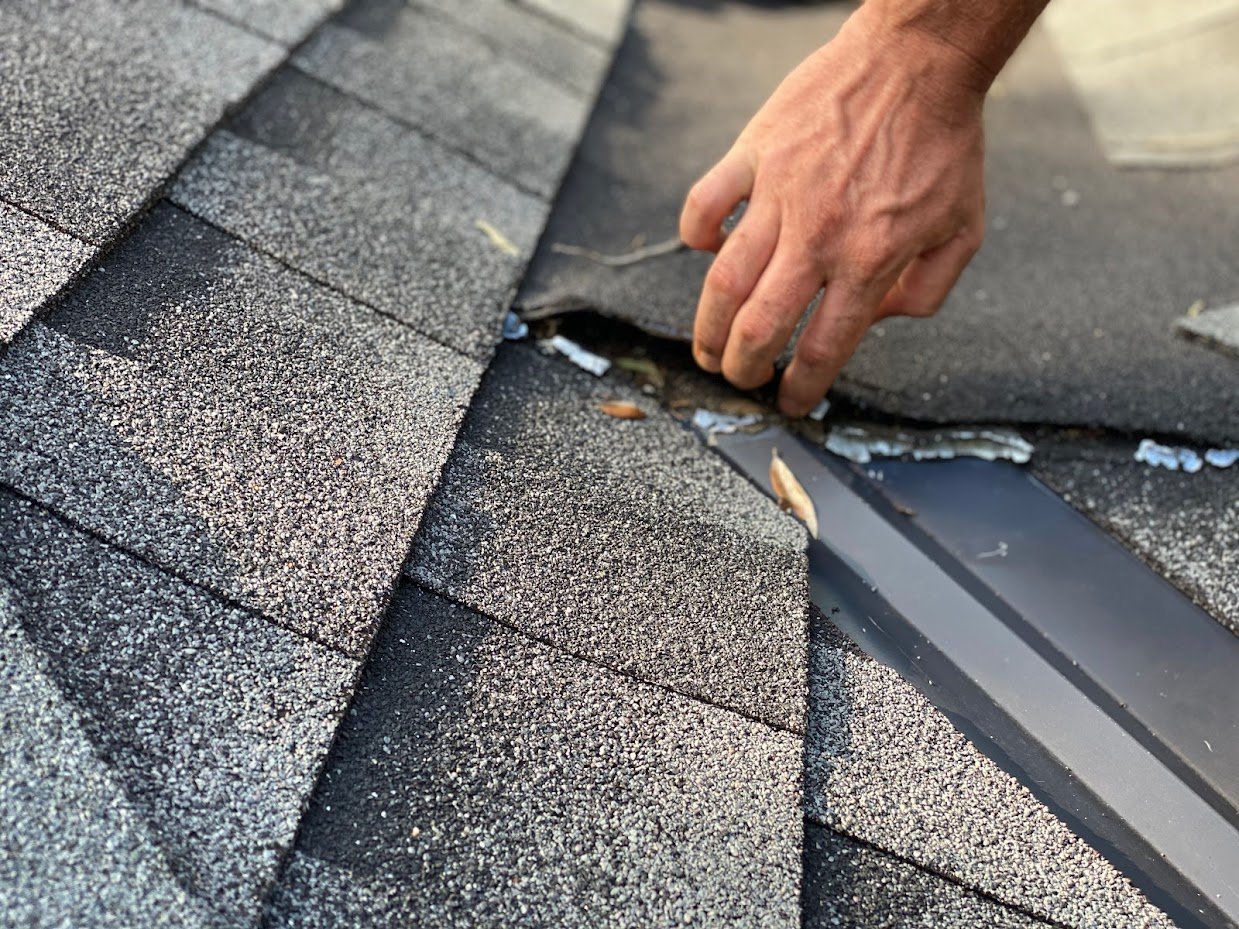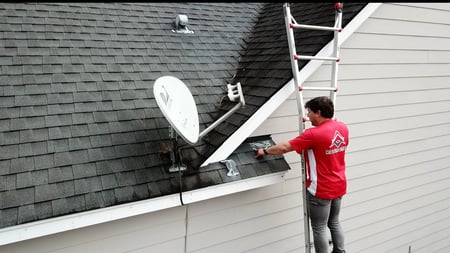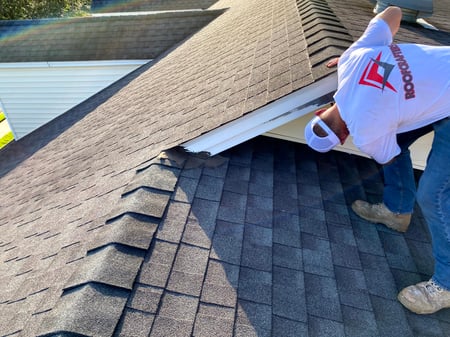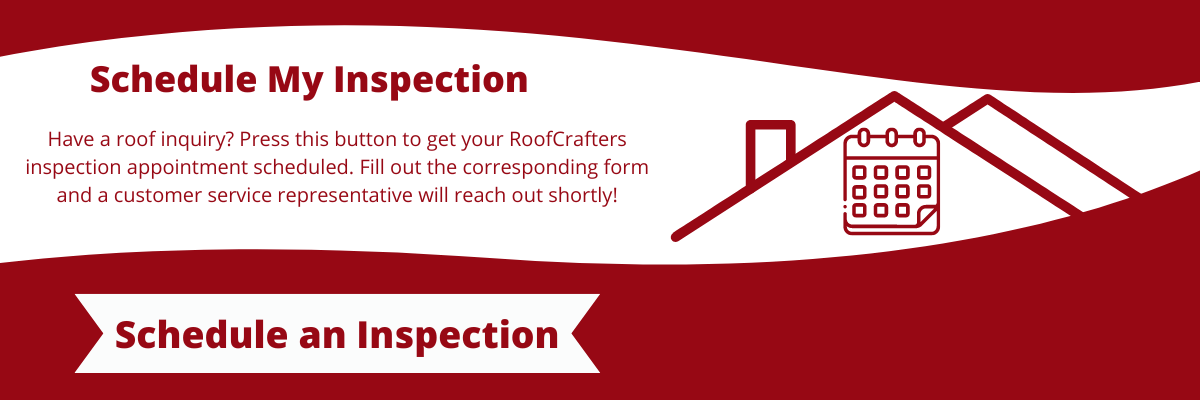
When you're looking to keep your roof in top shape, timing is everything. When it comes to roof inspections, the best time often depends on your climate and the weather patterns in your area. Typically, late spring and early fall are prime times for a thorough check-up. These seasons offer moderate weather, which is not only safer for the inspectors but also makes it easier to spot and address any damage that might have occurred over the winter or summer.
At RoofCrafters though, we know that when it comes to roof inspections, one factor bigger than the season is, of course, the reason. If your roof has sustained damage, or your spidey senses start tingling and you believe you may have a hidden leak, it’s of the utmost importance to schedule that inspection ASAP!
So, when exactly is the best time for a roof inspection? I’m glad you asked! In just a few short moments, you’ll get a better grasp on what exactly a roof inspection entails, the best time for a roof inspection (including all of the factors), and how frequently you should have this service performed by a professional. Let’s get started!
What Is a Roof Inspection?

A roof inspection is a thorough examination of the condition of a building's roof to assess its integrity, identify any issues, and determine if any repairs or maintenance are necessary. Roof inspections are typically conducted by professionals, such as roofing contractors or inspectors, who have expertise in evaluating roofing systems.
During a roof inspection, various aspects of the roof are examined, including:
-1.png?width=1200&height=200&name=Recommended%20Reading%20(79)-1.png)
Roofing materials: The inspector checks the type and condition of the roofing materials, such as shingles, tiles, metal panels, or membranes.
Structural integrity: The overall structural integrity of the roof is assessed to ensure it can support the weight of the materials and withstand external forces.
Flashing: Inspection includes checking the flashing around chimneys, vents, skylights, and other roof penetrations to ensure they are properly sealed and in good condition.
Gutters and drainage: The condition of gutters, downspouts, and drainage systems is examined to ensure proper water flow and prevent water damage.
Attic and interior inspection: Some roof inspections may include checking the attic and interior spaces for signs of leaks, water damage, or insulation issues related to the roof.
Ventilation: Proper ventilation is essential for a healthy roofing system. Inspectors assess ventilation to prevent issues such as mold growth and to ensure temperature regulation.
Soffits and fascia: These components are examined for signs of damage or deterioration.
Roof slope and pitch: The slope and pitch of the roof are evaluated to ensure they meet design specifications and provide effective water runoff.
Roof inspections are crucial for proactive maintenance, as they can help identify and address potential problems before they escalate into more significant issues. Regular inspections are recommended, especially after severe weather events such as storms, heavy rainfall, or hail, which can cause damage to roofs.
Homeowners, property managers, and building owners may schedule routine roof inspections to extend the lifespan of their roofing system and prevent costly repairs or replacements. Professional roof inspectors can provide detailed reports and recommendations based on their findings.
When Is the Best Time for a Roof Inspection?

The best time for a roof inspection can depend on various factors, including the climate in your region, the type of roofing material, and the age of the roof. However, there are certain situations and times when scheduling a roof inspection is particularly advisable:
.png?width=1200&height=200&name=Recommended%20Reading%20(78).png)
After severe weather events: Schedule a roof inspection after severe weather events such as storms, hurricanes, hailstorms, or heavy snowfall. These conditions can cause damage to your roof, and it's crucial to assess and address any issues promptly.
Twice a year: It's generally recommended to have a roof inspection at least twice a year, ideally in the spring and fall. These seasons are often more temperate, making it easier for inspectors to assess the roof without dealing with extreme weather conditions.
Before winter: If you live in an area with harsh winters, it's a good idea to have a roof inspection in the fall before the colder weather sets in. Identifying and addressing any issues beforehand can help prevent problems during the winter months.
Before selling or buying a property: If you are selling or purchasing a home or property, it's advisable to have a roof inspection as part of the pre-purchase or pre-sale inspection process. This can help determine the condition of the roof and any potential issues.
After roof installation or repairs: After any significant roof repairs or a complete roof replacement, it's wise to have a follow-up inspection to ensure that the work was completed properly and that the new roofing system is in good condition.
Regular maintenance schedule: Establishing a regular maintenance schedule for your roof, which includes inspections, can help identify and address small issues before they turn into more significant problems.
It's essential to note that if you notice any signs of damage, such as leaks, water stains, or missing shingles, you should schedule a roof inspection promptly, regardless of the time of year. Additionally, consider consulting with a roofing professional to determine the best timing for inspections based on your specific circumstances and local climate. Regular inspections can help prolong the life of your roof and save you from costly repairs in the long run.
How Frequently Should I Have My Roof Inspected?

To recap, a professional roof inspection is key to maintaining a home's health and safety. Experts suggest having your roof checked out by a pro annually, especially after severe weather events. This routine check-up can reveal potential issues like cracks, leaks, or worn-out shingles before they turn into bigger, costlier problems. It's a small step that can prolong the life of your roof and save you from unexpected headaches down the line. Plus, it gives you peace of mind knowing your roof is in tip-top shape!
Are You Due for a Roof Inspection?
All in all, when it comes to the best time for a roof inspection, it's generally ideal to schedule it during the fall. This is a great time because the harsh summer sun has passed, and you'll want to make sure everything is secure before the winter weather hits. Inspections during this season can identify any damage from summer storms and heat, allowing you to get repairs done in time to withstand the potential challenges of snow and ice.
Spring is another key time for a roof check-up. After winter, it's smart to assess any impacts from the cold, such as ice damming or shingle damage. This season's milder weather makes it easier for inspectors to spot and fix problems, ensuring your roof is ready for the upcoming summer heat.
Despite the season, it's also wise to have an inspection after any severe weather event, regardless of the season. If you've had a major storm, hail, or high winds, getting an expert to take a look can catch any immediate damage that could lead to bigger issues if left unattended. If you’re past due for a professional inspection, be sure to hit the “Schedule an Inspection” button down below, and one of our experts will evaluate the health of your roof, and check for any areas of concern!
At RoofCrafters, our mission is to provide job opportunities for others to thrive and grow while making a meaningful impact within our communities.



